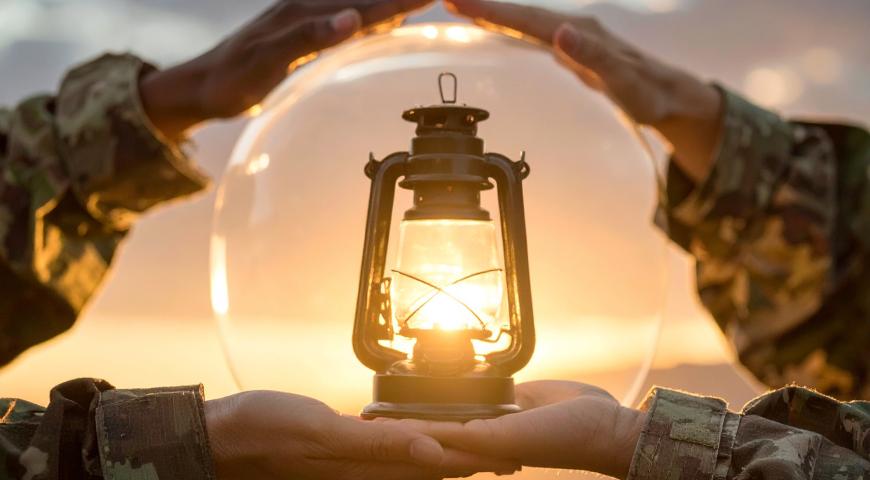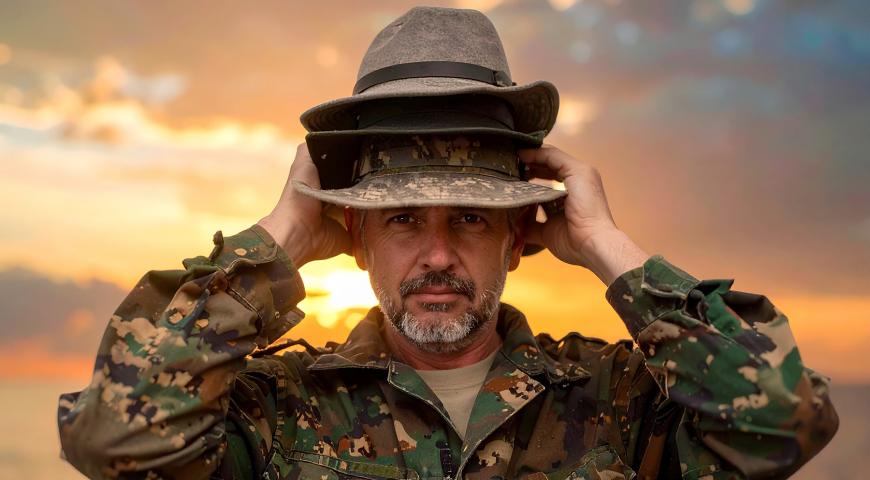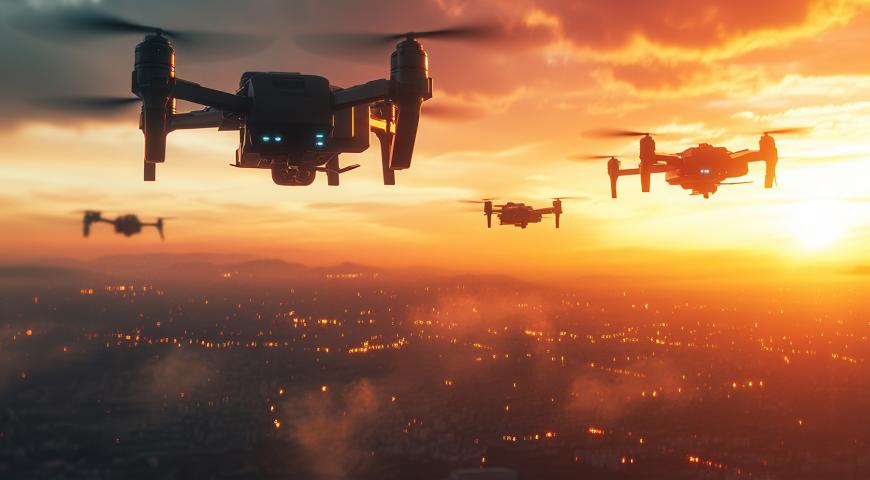Why do I write?
Ian Langford
Writing on issues of Warfare and the profession of soldiering is an inherent duty, not an indulgence or an option. I see it as a fundamental leadership behaviour, something which is required as part of fulfilling a moral and ethical obligation to the military profession. Commanders of military operations must contribute to the broader discourse; they need to be able to formally state a hypothesis on warfare and then be able to defend their argument. A failure to do so places limits on their capacity to be entrusted with the operational art. Warfare is part of human nature and for commanders not to be able to articulate themselves beyond opinion and general conversation in my view effectively disqualifies them from command itself.
What inspires me?
Mark Twain inspires me, a man who worked a steamboat on the Mississippi River for 22 years before he wrote The Adventures of Huckleberry Finn. Junior commanders inspire me. Combat leaders who lead by choice, not by appointment. The Australian Army’s operational reputation rests mostly on tactical actions. Army is best at Combat Team and below. In this context, it is our JNCO and young officers who distinguish themselves. They are critical to how we access our adversary’s ‘defeat mechanism’. Junior commanders bring truth to power. From Mark Twain: If you tell the truth, you don't have to remember anything. Our junior leaders inspire me to take seriously my role and oblige me to be part of the professional military debate. And this is why I write.
Where do I get my ideas?
The natural sciences, commonly referred to today as life science. Water, movement, season, the universe, energy. Pressure and flow. Much of this is found in military theory. Sun Tzu. Liddell-Hart. Desmond Ball. William McRaven. Brendan Sergeant. Emilie Simpson. Clausewitz (Carl and Marie). I am also an amateur observer of political events and world affairs. Try as I might not to be, I am still very interested in the politics of the day and the potential impact that it has on all of us. In this sense, I spend a lot of time contemplating the effects of both the changing international system and the impact of disruptive technology; robotics, advanced manufacturing, artificial intelligence and advances in life sciences. To the degree that I am able, I take many of these ideas and translate them to the military dimension. And this is where a lot of my professional thinking and writing comes from.
How to find time to read and think?
De-clutter. As Henry David-Thoreau said: ‘Simplify, Simplify!’ Make time. All commanders should live by the ‘2-3-7’ rule; 2 hours for personal time, 3 meals a day, 7 hours sleep. This leaves 12 hours for work and other pursuits. There is time. Make it a priority. Do your best to set routine, make appointments to yourself to write and when that time comes, ensure you report to your computer or notebook ready for duty. Staring at a blank screen is part of learning how to write. It builds space for contemplation, for thinking. And as is often the case, when the words finally come, they tend to pour out. This is when writing is fun, fulfilling and exciting.
Good writing isn’t like learning to ride a bike, where once you learn you never forget. Writing requires practice. It is a genuine craft. Like a blacksmith forging steel, the writer must take the time to forge molten metals into wrought iron. Some writers are like these blacksmiths- they are brutal, forceful and unsophisticated in prose. Others are like jewellers, never wasting words and focused on symmetry, balance and structure in language. Both the blacksmith and the jeweller are effective, albeit different. And they are both products of intense preparation, repetition, practice and experience. And writing is no different. It requires dedication, perseverance, and self-belief.
Advice for beginners
Follow Mark Twain’s advice: The secret of getting ahead is getting started. Start small, be brave and back yourself. Write an essay. Do a blog. Think aloud. And travel. Make it a priority to understand the world around you, know what changes and what remains the same. Learn as Mark Twain did: Travel is fatal to prejudice, bigotry, and narrow-mindedness.
I love topic sentences. I really like the use of active voice. And I love paragraph structures that have a beginning, a middle, and an end (just don’t do it in one long single sentence!). Good grammar and the use of plain English is an important skill in writing. If you don’t have it, learn it. The military mind suffers from a tendency to turn simple ideas into complex concepts. Try to avoid that terrible curse. Instead, take the view that you are writing for an audience that has a low level of professional knowledge. In writing simply, you will find that your prose is much clearer, more succinct and easily understood.
Surround yourself with people you trust. Mark Twain was close friends with Nickolas Tesla, Thomas Edison, and Ulysses Grant. Mark Twain again…: Keep away from people who try to belittle your ambitions. Small people always do that, but the really great make you feel that you, too, can become great. Find a mentor, a trusted agent. Successful careers and great pieces of writing will not occur without a peer and mentor support group around the person doing the writing or having the career. There is nothing wrong with asking for help, deleting the first draft, or asking someone for advice. Collaborate with others, share your ideas and bounce suggestions off one another. This is how good writing tends to begin, with a discourse or a dialectic on a particular issue. Think, share, talk, think, write and share, all in that order.
Conclusion
Writing is a skill that requires patience, discipline and practice. It is not elusive. We can all write clearly, many of us have merely forgotten how to do it and need to re-discover it again. Military writing is an ancient tradition, as old as warfare itself. The reason for this is obvious- the important business of waging war on behalf of your nation deserves serious contemplation. We are all obliged to be part of this and are able to contribute in our own individual way. If you can’t write, learn. If you are afraid, be brave. You won’t regret it. The confidence that comes from a good piece of writing is potentially transformational. Both for the author and the reader. It is particularly important in the military where the combination of inspiration, education, and resolve via written instruction can be the difference between success and failure. So, go ahead and write.
Brigadier Langford has held a range of command and staff appointments in the Army and Special Forces during his career. Brigadier Langford has served as the Commanding Officer, 2nd Commando Regiment, and has commanded multiple Special Operations Task Groups in Afghanistan, Iraq, and domestic counter-terrorism duties. He assumed the role Director-General of Future Land Warfare, Army Headquarters, in December 2018.
Brigadier Langford is a Distinguished Graduate of the United States Marine Corps Command and Staff College and the School of Advanced Warfighting. He holds a Bachelor’s degree in Management, a Master of Arts, a Master of Defence Studies and a Master of Strategic Studies. He has been published in multiple service journals and as an independent author, and is currently undertaking PhD studies.
Technical Mastery
Social Mastery
Please let us know if you have discovered an issue with the content on this page.
Comments
Start the conversation by sharing your thoughts! Please login to comment. If you don't yet have an account registration is quick and easy.




